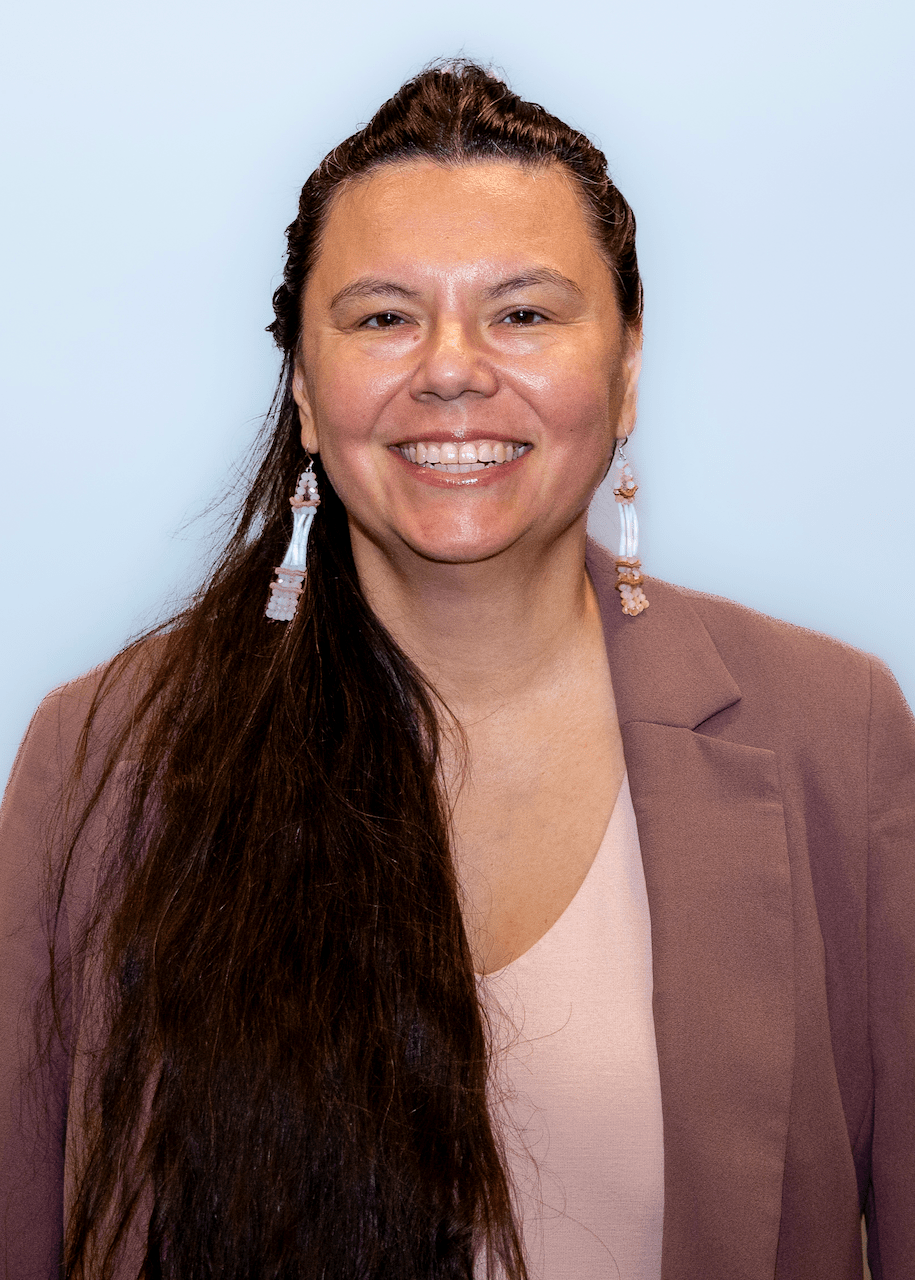This year The Crestone Eagle will be taking notes from the all-Indigenous-led newsroom, IndigiNews. The Crestone Eagle is grateful to be mentoring under IndigiNews Publisher, Eden Fineday, who will offer DEI council to staff, provide cultural sensitivity readings of published content and deepen our capacity for meaningful, sensitive, and accurate coverage of Indigenous topics.
By Eden Fineday
IndigiNews Publisher
My name is Eden Fineday. I am a Cree woman (nehiyaw iskwew). I live above the imaginary line that was drawn across the continent back in 1846. I come from Treaty 6 Territory, which is an agreement made by my people and the Queen of England in 1876.
I was raised in Vancouver, B.C. by my mother, and didn’t even discover that my last name was Fineday until I was 14. That’s when I also reconnected with my father, and my extended family on the reserve. My reserve is called Sweetgrass. It was founded by Chief Sweetgrass a few years after he signed Treaty 6. My great-great-grandfather is Fine Day, a warrior chief.
On my mother’s side, my ancestry is Ukrainian. That’s not an uncommon mix on the prairies of Canada, where the Canadian government actively recruited Ukrainian immigrants. In the 1920s, government agents would go to the Ukraine and offer families free land to move to Canada. They wanted to settle the prairies with whites, but the winters are so severe on the prairies that they felt they needed “hardy stock.” The Ukrainians fit the bill.
I am the publisher of IndigiNews, an Indigenous-led, online news platform based out of British Columbia. We are journalists who are passionate about decolonizing the media in service of our communities.
How do we do this? By integrating Indigenous ways of knowing and seeing into our coverage and upholding Indigenous values and perspectives in our stories.
What it means in our day-to-day operations is that we take good care of our sources, and we take good care of each other. One of the main teachings I’ve received from my Cree Elders is that how we do something is just as important as what we do. Shifting toward this attitude has created cascading change and has colored everything we do.
Because we take such care with our stories and prioritize the health of our people, we don’t do much breaking news. I like to joke and say we do “slow news” instead, because writing stories with care takes time. We sometimes feel pressure to do things the way everyone else does, but we’ve learned over the years to listen to our instincts — and our Elders.
I’ll give you an example. In May of 2021, just a year after IndigiNews published its first story, anthropologists using ground-penetrating radar discovered 215 anomalies on the grounds of a former residential “school” in the community of Tk’emlúps (Kamloops, B.C.). Residential schools, the Canadian equivalent of boarding schools in the U.S., were church-and-government run institutions that were created to “kill the Indian and save the child.” They were brutal places where children were routinely raped and murdered. That may sound like an exaggeration, but I assure you, it’s not.
I know because my father went to such a residential school. Those who survived the medical experiments, beatings, malnutrition, and sexual abuse often died within a few years of being let out. That level of violence and depravity leveled against a child does not create healthy adults. Students of these places of torture were released into communities who were still struggling with intergenerational trauma, and each generation of students who came home damaged from school perpetuated that cycle.
So, when the news came out about Tk’emlúps, our newsroom was rocked. Our reporter Kelsie Kilawna was a member of that community, and she had relatives that had attended that very school. As mainstream media mobilized journalists from all over the world to descend upon Kamloops for a few days, we watched as reporters took photos of grieving Elders, filed their stories, and left.
IndigiNews did the opposite. We decided to shut down our storytelling lodge for a whole week. We purposely did not cover the story, at least not in the way mainstream media did. Only after observing a four-day period of mourning, when a sacred fire was burning in the community, did we write about what happened. But we focused on healing. We offered an alternative narrative, one that supported our kin, who had already been through so much.
The only story we published that recounted the horrors of the Kamloops Indian Residential School was written because a survivor of the school approached us. He wanted his story to be told, and we obliged.
Who we are as Indigenous people inevitably influences how we report on our communities. It can’t not affect how we do our jobs. Some folks may feel that this means our coverage is biased, but I would disagree. Every person writes from their own perspective, and every person’s perspective is colored by their experiences. Even white men have a bias, although they’ve been treated as neutral observers in this industry.
Acknowledging that everyone brings with them their own bias, informed by their experiences and status in society, is part of how we decolonize the media at IndigiNews. Another way we do it is by focusing on strength-based stories, rather than sensational, the painful and traumatic stories.
We also run our newsroom differently than most newsrooms. We call it a storytelling lodge, and we consider the mental health and wellbeing of everyone on our small team. I’ve personally witnessed a higher-than-average occurrence of losses and hardships in Indigenous employees, and so I created a wellness program for our newsroom that makes room for that.
We have one paid day off per month, where IndigiNews shuts down and employees are encouraged to focus on self-care. We also have a wellness fund that we use to send Indigenous employees back to their home communities. Extended paid time off for employees who are dealing with personal crises, such as violence in the home or the loss of family members, is also offered.
In short, we focus on the humanity of our employees, just like we focus on the humanity of the people we write about in our stories. What we do is not complicated, but it is radical in an industry where most reporters are asked to produce stories quickly and often, with varying degrees of care given to sources or the reporters who talk to them. We try to do things in a good way. It’s sometimes difficult to go against the grain, but it’s the only way that feels right for us to operate.
I thank you, readers of The Crestone Eagle, for this opportunity to share my perspective with you. We may be separated by an imaginary line, but I consider all of you my kin. In my teachings, the people of the world are all related. We need to take care of each other and foster understanding. I hope that my words have done that.
hiy hiy (Thank you)!
kinânskomitinaw
(I am grateful for all of you).

